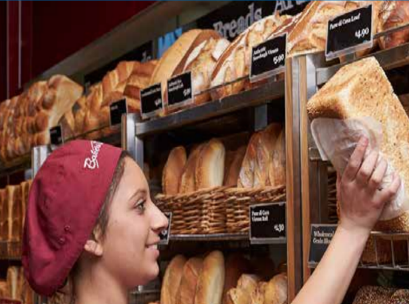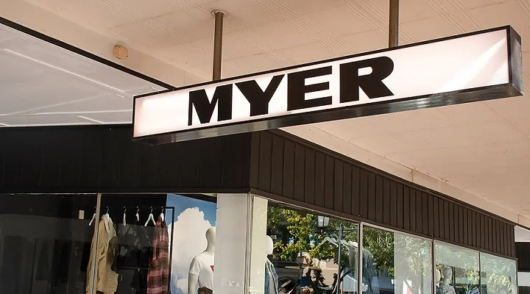The Fair Work Commission’s review of the 2010 retail award is now bordering on farcical. It would be uproariously funny if it wasn’t so serious. The review was started in 2014 and the Fair Work Commission has yet to finalise the review because it cannot reach a conclusion on penalty rates in the retail industry. As Russell Zimmerman, Australian Retailers Association (ARA) executive director, points out, it is effectively time to commence the 2018 review of the award. The protracted review ha
as already cost the ARA $1.8 million with other retail industry associations probably spending similar amounts and the unions upwards of $5 million.
Justice Ross, the president of the Fair Work Commission, was expected to hand down the long overdue decision on penalty rates by 20 January, an expectation raised by a speech he made at a retail forum last year.
Instead, Justice Ross and the commission asked parties to the review for yet more submissions and reset the timetable for a decision by up to another three months.
The new information sought by the Fair Work Commission seeks to establish whether or not retail employees would fall into a definition of low paid workers if there was any change to penalty rates.
At this point, the Fair Work Commission apparently has the view that retail employees do not fall into the category of low paid workers.
The problem is that while the review drags on, retail chains and independent retailers are going broke with a loss of retail jobs and other stressed retailers are playing fast and loose with current award entitlements or waiting anxiously for a decision on which to develop their new enterprise bargaining agreements.
The simplified award and the four-year reviews process have caused confusion and are actually throttling employment growth in the retail industry.
Retailers are paring back staff in shopping centres to the bone, to the extent that there are often notes on shop doors to explain the single staffer minding the shop will be back in a few minutes because nature calls.
Shopping centres take a dim view of retailers that do not open at weekends and on designated nights, including Christmas trading marathons, but wage costs, bloated by Sunday and public holiday penalty rates, are undermining the profitability of many stores.
Recent months have seen Payless Shoes, Howards Storage, Pumpkin Patch, Marcs and David Lawrence forced into administration and the penalty rate regime has been a factor notwithstanding any management shortcomings that might have occurred in those chains.
However, the stress across retail is much greater and has retailers compromising their service levels by keeping staff rosters to the bare minimum and, in many cases, using less experienced staff.
Perhaps more critically, some retailers are maintaining outdated enterprise agreements with staff in an attempt to keep wages under check or to ascertain what any new provisions for the retail award will be before re-writing their own agreements.
Zimmerman, Jos de Bruin, the executive director of Masters Grocers Australia, and other industry groups remain hopeful that the Fair Work Commission will revise penalty rate provisions to ensure retailers can hire more staff and lift service levels in peak shopping hours without draining profitability.
It would seem to be in the interests of the union to see the industry creating more jobs and retailers not faced with having to close their doors, but the Shop Distributive and Allied Employees Association (SDA) sometimes works in mysterious ways.
A good example would be an enterprise agreement the union struck with Coles Supermarkets that was initially accepted and then rejected by the Fair Work Commission because it left a large proportion of employees worse off financially.
The SDA struck other deals with Woolworths, McDonalds and other large retailers that shortchanged employees but was good for membership and political clout within the broader union movement and Labor Party politics.
The Australian Meatworkers Union was particularly scathing of the SDA deals with the supermarket chains but also criticised a cosy deal with the Swedish retailer, H&M, that has been rejected by the Fair Work Commission.
H&M tried to trim its wages bill in a 2016 enterprise agreement that failed the Fair Work Commission test that no employee should be worse off than if they were paid under the award.
The thrust of the H&M agreement was to reduce penalty rate entitlements for staff rostered on weeknight and weekend shifts, although the agreement was also silent on issues, such as compassionate leave and paid parental leave.
Geoffrey Bull, the Fair Work Commission deputy president, criticised H&M and the SDA, which became much less enthusiastic about the enterprise agreement after the controversy surrounding the Coles, Woolworths and McDonalds deals.
The number of enterprise agreements registered with the Fair Work Commission is currently around 260, compared with 1248 in 2013, according to ARA statistics.
Some of the around 260 agreements are effectively legacy agreements struck some years ago and providing entitlements that are lower than those included in the current retail industry award.
Retailers that have had to revisit their old enterprise agreements include Bakers Delight and Grill’d.
The significant decline in the number of agreements struck between retailers and their own employees underscores the increased reliance of retailers on the retail award and the urgency for the completion of the Fair Work Commission review and a determination on penalty rates.
If nothing else stands as a motivation for the Justice Ross to finalise the review, surely the scale of underpayment of employees in the retail industry currently, particularly those who work at nights and or weekends, should hasten deliberations.
Fairfax Media claimed last August more than 250,000 retail workers were being shortchanged around $300 million.
Whether it is ignorance, deliberate breaches of the law or confusion, the list of offenders for the underpayment of staff on penalty rates includes Domino’s Pizza Enterprises, Premier Retail, Pizza Hut, Caltex and, famously, 7-Eleven.
Myer, Woolworths and Coles Supermarkets have also been linked to underpayment of workers employed by contractors and suppliers to their stores.
You would expect the 7-Eleven scandal to have been a wake-up call for retailers on wage entitlements, especially when the Fair Work Ombudsman has initiated a more rigorous investigative approach and is receiving an increasing number of complaints and inquiries from individuals who believe they are being underpaid.
The Fair Work Ombudsman is continuing to investigate 7-Eleven franchisees and with the cooperation of Caltex Australia, is also checking the employee records of Caltex franchisees.
An audit by the regulator found that most drivers employed by Pizza Hut in 2015-2016 were underpaid, with most engaged as contractors when they were actually employees.
Pizza Hut is now under new ownership but the Fair Work Ombudsman is pursuing franchisees who did not meet their legal obligations and may well also include the former franchise system owner, Yum Brands, in prospective legal proceedings.
At this point, the regulator has issued enforceable undertakings and compliance notices to franchisees and is negotiating a compliance partnership with the new owners of Pizza Hut.
The enforceable undertaking requires franchisees to repay all underpayments and to locate and repay any former employees who are also entitled to repayments.
The terms of an enforceable undertaking also requires franchisees to issue an apology to impacted workers, ensure that all staff are correctly engaged as employees rather than independent contractors and provide information on workplace rights to all staff.
The compliance partnership model has been adopted with companies such as McDonalds, JB Hi-Fi and 7-Eleven.
The Fair Work Ombudsman has also commenced an audit of the Domino’s Pizza franchise system, which is currently negotiating with the SDA on a new enterprise agreement.
Domino’s Pizza has voluntarily increased delivery driver pay packets but the Fair Work Ombudsman audit is also investigating claims that other employees are required to do unpaid overtime cleaning and closing stores.
The Chemist Warehouse chain was also forced to change a requirement for employees to attend unpaid training sessions.
The share price for Domino’s Pizza has fallen since the company revealed it would need to increase wages and to introduce a Sunday and public holiday loading. However, the investor qualms probably reflect fears of a 7-Eleven-type scandal damaging the brand.
For everyone’s sake, Justice Ross need to make good on his commitment last September to finalise the review and to address the penalty rates issue which is adversely impacting on shoppers, retailers, existing employees and job seekers.







